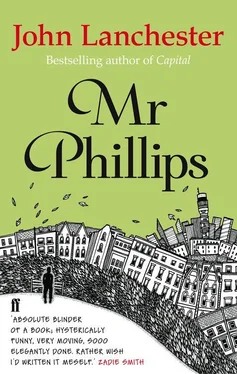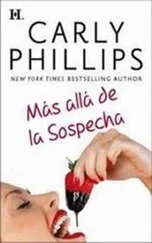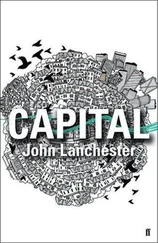When his father had died in 1981, of a stroke, Mr Phillips had helped his mother clear out his parents’ small house — not the one Mr Phillips had grown up in in Wandsworth but a newer, bigger semi in Sutton. It was a bad time. Mr Phillips disliked sorting through old things anyway, because his overwhelmingly strong instinct never to throw anything away made it difficult for him to take rational decisions; he ended up lingering over and fingering old calendars, old rail tickets, car magazines, bank statements. In the course of the Phillips’s periodic blitzes on Martin’s and Tom’s rooms, he would be more reluctant to chuck out old clothes and old posters than they were themselves. Mr Phillips liked to think this was linked to the trained accountant’s fear of mislaying an important piece of paper. At the same time, he felt a powerful impulse to cling on to everything, to keep the past alive by maintaining a physical grip on objects whose meaning belonged there.
‘You’re a squirrel,’ was what his mother had said. It struck him as a startling metaphor.
‘Am I?’
‘It’s just an expression.’
‘They’re vermin, aren’t they? Squirrels.’
‘It’s just an expression.’
His father too had been a squirrel; his mother on the other hand was a … whatever the opposite of a squirrel was. It was hard to think of an animal that took active pleasure in throwing things out. Something small and clever and quick, which didn’t keep things stashed in its burrow.
The result was that the house, when they went through it in the aftermath of his father’s death, had been full of his things but had almost nothing of his mother’s. It was as if she had died a while before. There didn’t seem to be any distinctions or discrimination in his father’s hoarding. One trunk had carried both his own father’s birth certificate, which by any standards was an important piece of paper, along with ten years of Mr Phillips’s and his sister’s school reports, carried in a Manila envelope that was itself stained with age.
The bottom drawers of his father’s desk, one on each side, had been locked. The key was in the supposedly secret drawer at the back of the middle part of the desk, just above where your knees went — though it was hard to imagine a burglar so idle or so useless that he wouldn’t find the hiding place within seconds. The left-hand drawer had contained up to date financial records and two National Savings certificates to the tune of £5000 each — which, with the house, proved to be the outstanding bulk of his father’s estate, enabling Mrs Phillips to move to Australia to live with Mavis and Terry and the girls. The marriage certificate, from Wandsworth registry office, and Mr Phillips’s grandmother’s death certificate were also there, in a folder marked ‘Certificates’. The drawer on the other side had been full of pornographic magazines and pictures cut out of pornographic magazines, some of which had been put in a clear plastic folder because … because what? They were his father’s favourites and he didn’t want them to be damaged by his own fingering?
Mr Phillips could not stop himself from paying close attention to this glimpse into his father’s consciousness. At the same time, he had to admit that he wouldn’t want his sons to have the same opportunity in relation to him –
‘Dad wasn’t much of a tit man, was he?’
‘No, it was bums or nothing for the old man.’
His father did however seem to have been a tit man. How odd that these things weren’t inherited or genetically programmed. The photos encased in plastic were not, Mr Phillips was confident, the ones that he himself would have chosen. You would have thought that if any preference or affinity was going to be inherited it would be that.
His father had died too soon: these days there were whole magazines dedicated to the subject of big breasts. Though that might have been too much of a good thing; perhaps flicking through the pages looking for a just-right girl was part of the thrill of the chase. But Michael Phillips had been forced to look at photos of girls bending over to show off their bottoms, or lying on their backs looking as if they wanted to have sex right there and then — which was fine in Mr Phillips’s book, but did tend to make their breasts look smaller. In the drawer there must have been thirty magazines, featuring naked girls in not too explicit poses — no ‘beaver shots’ of gaping vulvas. Say ten girls a magazine, so a total of three hundred girls in his father’s version of Bluebeard’s room. In addition, there were another forty or so girls encased in the plastic. So that was 340 in all, hidden in his father’s desk drawer. The girls would have gone on with their lives, some of them presumably making reasonable livings in modelling, others quitting young, or having one big break, this session with Knave or Penthouse or May-fair the apogee of their careers, since what did they do next? Were they endlessly recycled among the top magazines, or was it one brief moment literally under the lights and then finito? Anyway, their lives would have gone on, the photo session a vague or vivid or unhappy or deliberately suppressed memory, while they lived on fixedly in his father’s desk drawer, caught for all time in a momentary pose adopted who knew where, who knew when, in front of who knew what sort of sleazy, grimacing patter-keeping-up photographer. ‘Make love to the camera! Show me your heat!’
The strength of the appetites represented by this pile of images had its impressive side. But finding the photos made Mr Phillips feel lonely. His grief he had to some extent been able to share with his wife (who had liked his father, and thought he was ‘a good man’) and mother and sister, who had flown over for the funeral but only stayed for thirty-six hours, since she had had to return for some pressing family reason Mr Phillips could not now remember. But he didn’t feel he could share his discovery with any of them; it was against the ethics of male fellowship, as well as against family feeling, as well as the opposite of what his father would have wanted. So he put the magazines and clippings and plastic folders along with other throwoutable items into a big plastic bag and headed for the council dump. There was a not-small touch of death in this, since papers which his father by definition hadn’t thrown out had now become, at the moment of his death, junk, rubbish, clutter, their interpretable status changing through no fault of their own. He chose the dump, rather than just leaving them out for collection by the bin men, in case one of the bags might split open and disgorge its mixture of old bills, old bank statements, old newspapers and pictures of naked women to the astonished and secretly thrilled street. I always thought there was something odd about him.
The plan was to take the clothes to Oxfam; other saleable items, like the radio his father had kept in the bathroom, a dressing-table mirror with a hideous pink frame, and other things that neither his wife nor Mrs Phillips wanted, to the Barnardo’s charity shop; papers and pornography to the dump. Mr Phillips drove to the dump first, because he was troubled by the possibility that he might hand the wrong bags over by mistake. A man from the council in blue overalls was directing traffic at the site, over which hung a faint smell of burning and the stronger, sweet reek of dumped rubbish. As he began hefting the bags out of the car Mr Phillips realized that he didn’t trust them to stay intact until they were thrown into the masher or incinerated or whatever happened to them. Again, the worry was that the bags might be torn open and the contents strewn around by the wind or whatever else, and his father’s secrets would be revealed, and at the same time, because of the bank statements and utility bills, his identity might be traceable, so that everyone would know who he was and what he had liked. So, having got to the dump, Mr Phillips returned the bags back to the back of the car and drove home, by now in Saturday post-football traffic. He made a melodramatic bonfire in his own back garden, banning Mrs Phillips and the children from going outside. He stacked up the magazines, took the pictures out of their plastic holders and crumpled them on top, poured barbecue lighter fluid over the lot and threw on a match. The mountains of girls in their stiff paper, the curious waxy paper of porn mags, burned well. Then he put the other, innocuous papers into the rubbish bin at the front of the house, the last time his father’s stuff would be taken away by the bin men, and went back inside. The clothes and odd and ends stayed in the car, since it was by now too late to take them to their respective charities.
Читать дальше




![Unknown - [Carly Phillips] The Bachelor (The Chandler Brothe(Bookos.org) (1)](/books/174132/unknown-carly-phillips-the-bachelor-the-chandle-thumb.webp)







